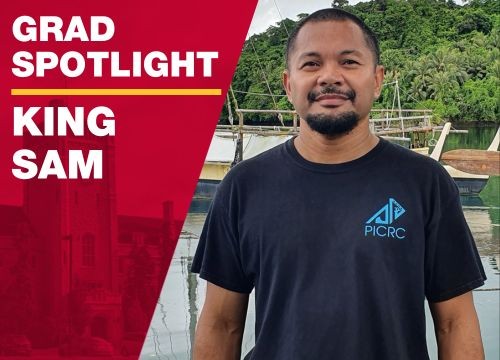King Sam Spotlight: Looking at Conservation beyond Geopolitical Barriers

What motivated you to pursue the Master of Conservation Leadership program, and what specific areas of conservation are you focusing on? How does your current work/career fit into this?
Pursuing a master's degree has always been a personal and professional goal. As a site manager for a large scale marine protected area, I work with many experts and scientists at the national and international levels. Obtaining a master's degree in Conservation Leadership provides me with additional tools and knowledge to advance the work that I do.
Throughout your time in the program, have you encountered any insights or revelations about conservation practices or challenges that have influenced your perspective?
While managing marine and terrestrial spaces there are often addressed separately, this program made me realize that we need to look at conservation beyond geopolitical barriers and focus on ecosystems. The Indigenous Knowledge component of the program was an important reminder to look back at conservation measures that worked in the past and continue to learn from them and apply them in management.
Reflecting on your journey so far, what accomplishment within your studies and career are you most proud of, and why?
The program provided a unique opportunity for me to think outside of the box. Often, we inadvertently set parameters to our search for management solutions and limit the options available. The courses provided different perspectives on the challenges I needed to address in my career.
What personally motivated you to pursue a career in conservation leadership, and how do you envision yourself making a difference in this field in the future?
My motivation came from the unique biodiversity that I grew to appreciate here in Palau and a better understanding of the significant conservation values and ethics that our ancestors have placed on the environment. In a rapidly changing world, I want to make sure these values are maintained and continue to influence our conservation policies.
Is there a hobby, interest, or unique aspect of your personality that you find brings balance to your academic pursuits in conservation leadership? If so, could you share a bit about it?
It's extremely important that I regularly ground truth the work that I do with local fishers and the community. We do this work to ensure effective conservation and to protect livelihoods. The most rewarding part of my work is when a local fisher says he is catching more fish or bigger fish than usual and when families can afford to eat local, healthy and sustainably caught fish. This goes to the heart of what I do and brings balance to my academic pursuits and management goals.